It’s been a long time since I’ve updated this blog, and for that I apologize — life took some wicked turns, but now I’m back to 1980…
Suddenly it went astray
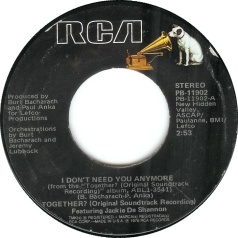 I’ve never seen the film Together? and based on the lead single from the soundtrack — “I Don’t Need You Anymore” recorded by Jackie DeShannon and co-written by no less than Burt Bacharach and Paul Anka (#86) — I don’t feel like I need to. The syrupy delivery of run-of-the-mill break-up lyrics slicked over treacly instrumentation, complete with plaintive, but unimpressive, harmonica, simply mumbles, “really, don’t listen.” It’s a shame, because the big reveal at the end (spoiler alert) “Except I don’t think it’s really true” gets drowned out in all the bathos. That last line really needs much more emotion than Jackie DeShannon is delivering.
I’ve never seen the film Together? and based on the lead single from the soundtrack — “I Don’t Need You Anymore” recorded by Jackie DeShannon and co-written by no less than Burt Bacharach and Paul Anka (#86) — I don’t feel like I need to. The syrupy delivery of run-of-the-mill break-up lyrics slicked over treacly instrumentation, complete with plaintive, but unimpressive, harmonica, simply mumbles, “really, don’t listen.” It’s a shame, because the big reveal at the end (spoiler alert) “Except I don’t think it’s really true” gets drowned out in all the bathos. That last line really needs much more emotion than Jackie DeShannon is delivering.
This funky kind of music just makes you want to move
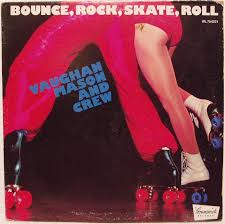 So, apparently “skate disco” was a thing, and if you were skate-discoing in early 1980, you were almost certainly doing so to “Bounce, Rock, Skate, Roll Pt. 1” by Vaughan Mason & Crew (#81). I was too young to skate disco; even if I were old enough, I’d probably not have been, because I’m a lousy skater and I don’t much like disco. Nonetheless, even though this song is as tautological as any song advertising some fad dance (like the popcorn or the peppermint twist), it’s nonetheless fun and funky. It’s got a good bassline, it’s got a good groove, and it doesn’t overstay its welcome.
So, apparently “skate disco” was a thing, and if you were skate-discoing in early 1980, you were almost certainly doing so to “Bounce, Rock, Skate, Roll Pt. 1” by Vaughan Mason & Crew (#81). I was too young to skate disco; even if I were old enough, I’d probably not have been, because I’m a lousy skater and I don’t much like disco. Nonetheless, even though this song is as tautological as any song advertising some fad dance (like the popcorn or the peppermint twist), it’s nonetheless fun and funky. It’s got a good bassline, it’s got a good groove, and it doesn’t overstay its welcome.
I work on solar power
 Donna Summer’s influence on disco can’t be overstated, whether you like her or not (I’m mixed on the subject). As evidence, we have “High on Your Love” by Debbie Jacobs (#70), which clearly shows the influence of “Hot Stuff“, not just in lyrical content, but from in instrumentation and delivery. As derivative as the song is, from its rambling guitar intro to Debbie belting out her lustful stamina, it does do a few interesting things. The song breaks away to an interesting cowbell interlude (can a cowbell have a solo? I guess so!) followed by a solo by some synthesized noodle box sort of noise thing. I’m kind of embarrassed to say it, but I like it. If I were at a dance club, this song could keep my batteries going for hours, too.
Donna Summer’s influence on disco can’t be overstated, whether you like her or not (I’m mixed on the subject). As evidence, we have “High on Your Love” by Debbie Jacobs (#70), which clearly shows the influence of “Hot Stuff“, not just in lyrical content, but from in instrumentation and delivery. As derivative as the song is, from its rambling guitar intro to Debbie belting out her lustful stamina, it does do a few interesting things. The song breaks away to an interesting cowbell interlude (can a cowbell have a solo? I guess so!) followed by a solo by some synthesized noodle box sort of noise thing. I’m kind of embarrassed to say it, but I like it. If I were at a dance club, this song could keep my batteries going for hours, too.
I can’t wish you well anymore
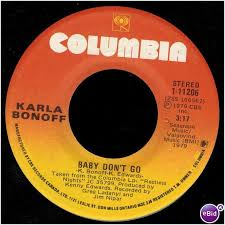 Full disclosure: I don’t think I’ve ever heard a Karla Bonoff song. She’s one of those names I’ve heard a lot about, but have no actual experience with. (Boz Scaggs is in this category as well.) “Baby Don’t Go” (#69) doesn’t really explain to me why she’s got a strong reputation. I can only imagine that she’s a really powerful songwriter whose work is too interesting to make it to the charts, except when she’s deliberately playing to the crowd. She’s a darling of Linda Ronstadt, who actually has pretty good taste in music, so that’s saying something there. I’m just not getting much inspiration out of this particular track.
Full disclosure: I don’t think I’ve ever heard a Karla Bonoff song. She’s one of those names I’ve heard a lot about, but have no actual experience with. (Boz Scaggs is in this category as well.) “Baby Don’t Go” (#69) doesn’t really explain to me why she’s got a strong reputation. I can only imagine that she’s a really powerful songwriter whose work is too interesting to make it to the charts, except when she’s deliberately playing to the crowd. She’s a darling of Linda Ronstadt, who actually has pretty good taste in music, so that’s saying something there. I’m just not getting much inspiration out of this particular track.
Take off your ring
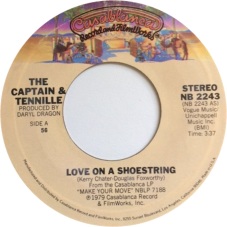 I had never herd “Love on a Shoestring” by Captain & Tenille (#55) before today. I expected it to be a sappy love song about how, when you have a perfect love, you can get through with out much money and get through any hardship. This is, I admit, mainly because I know “Muskrat Love“, which is dreadfully sappy in addition to being entirely ridiculous, so who could blame me for expecting more of the same? The good news is that I was wrong. This song is a bit edgier, telling the story of a woman who is recalling the affair she had with a married man, knowing that there were no (shoe)strings attached, and lamenting that the affair has lapsed. The bad news is that it’s still Captain & Tennille, which means it’s still musically uninteresting and vocally soulless. Nice try, big miss.
I had never herd “Love on a Shoestring” by Captain & Tenille (#55) before today. I expected it to be a sappy love song about how, when you have a perfect love, you can get through with out much money and get through any hardship. This is, I admit, mainly because I know “Muskrat Love“, which is dreadfully sappy in addition to being entirely ridiculous, so who could blame me for expecting more of the same? The good news is that I was wrong. This song is a bit edgier, telling the story of a woman who is recalling the affair she had with a married man, knowing that there were no (shoe)strings attached, and lamenting that the affair has lapsed. The bad news is that it’s still Captain & Tennille, which means it’s still musically uninteresting and vocally soulless. Nice try, big miss.
After all this time, you’d think I wouldn’t cry
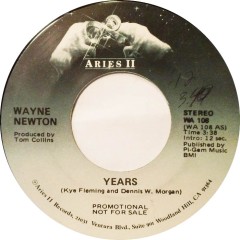 This is the only time we’re going to hear from Wayne Newton, so before I talk about “Years“(#35), I want to point out that in 1989, Wayne Newton made a wonderfully smarmy James Bond villain in License to Kill. As for “Years”, Barbara Mandrel first recorded it a year earlier and, despite the occasional bent-string country guitar string plaintiveness, I think her version is better. She’s got a voice that sounds like honey, whereas Wayne Newton has a voice that sounds, well, not silky-smooth anyway. When Barbara Mandrell sings about leaving the hall light on just in case her ex comes back, it sounds sweet; for Wayne Newton, it sounds pathetic, if not creepy. Barbara didn’t have to go for a cheap key change either. So, once again, here’s a cover of a song that really didn’t need to be covered.
This is the only time we’re going to hear from Wayne Newton, so before I talk about “Years“(#35), I want to point out that in 1989, Wayne Newton made a wonderfully smarmy James Bond villain in License to Kill. As for “Years”, Barbara Mandrel first recorded it a year earlier and, despite the occasional bent-string country guitar string plaintiveness, I think her version is better. She’s got a voice that sounds like honey, whereas Wayne Newton has a voice that sounds, well, not silky-smooth anyway. When Barbara Mandrell sings about leaving the hall light on just in case her ex comes back, it sounds sweet; for Wayne Newton, it sounds pathetic, if not creepy. Barbara didn’t have to go for a cheap key change either. So, once again, here’s a cover of a song that really didn’t need to be covered.
A good man pays his debts
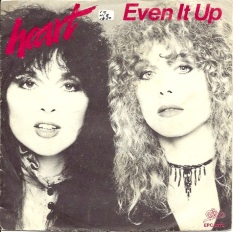 I am not a big fan of Heart, but I recognize that it’s a good thing they exist. They are refreshing proof that rock n’ roll (as opposed to pop) can be a women’s domain as much as it is for men. This may seem a strange thing that needs asserting, but the reason women rockers are fairly commonplace today is because of bands like Heart. In the macho 70s, Heart proved women could be tough and assertive without being countercultural, carving out space for women to be strong and disappointed with their male options. “Even It Up” is a great example of this: the girls — ahem, women — Are singing their hearts out about how much effort they’re putting into their relationship with a guy who’s not holding up his end of the deal. She brings him breakfast in bed when he’s down and all he can do is boast about his prowess. Well, in that last bit, she tells him the axe is going to fall (a female axe, mind) and then it does, with a solid guitar solo. So, keep on rockin’ Heart; I may not be listening, but there are a lot of guys who are, and, more importantly, should.
I am not a big fan of Heart, but I recognize that it’s a good thing they exist. They are refreshing proof that rock n’ roll (as opposed to pop) can be a women’s domain as much as it is for men. This may seem a strange thing that needs asserting, but the reason women rockers are fairly commonplace today is because of bands like Heart. In the macho 70s, Heart proved women could be tough and assertive without being countercultural, carving out space for women to be strong and disappointed with their male options. “Even It Up” is a great example of this: the girls — ahem, women — Are singing their hearts out about how much effort they’re putting into their relationship with a guy who’s not holding up his end of the deal. She brings him breakfast in bed when he’s down and all he can do is boast about his prowess. Well, in that last bit, she tells him the axe is going to fall (a female axe, mind) and then it does, with a solid guitar solo. So, keep on rockin’ Heart; I may not be listening, but there are a lot of guys who are, and, more importantly, should.
You were all of sixteen
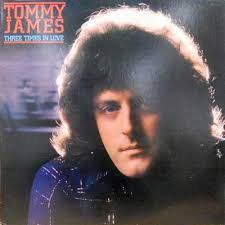 Listening to “Three Times in Love” by Tommy James (#19), I am reminded of The Last Picture Show, specifically the relationship between Jeff Bridges and Cloris Leachman. He’s a high school senior, she’s a middle-aged woman neglected by her otherwise distracted husband, and, in an Oscar-earning scene, the whole thing falls apart. I don’t know if Tommy James and Ron Serota had that scene in mind when they wrote this song, but they captured the sentiment of a mismatched relationship going past its expiration date. In this context, “Three Times in Love” imagines what eventually becomes of that sixteen year-old guy once he matures, and suggests he’s mature and can have a normal relationship. But, it’s Cloris Leachman whose shattered emotions won the Oscar; has anyone written a song about her?
Listening to “Three Times in Love” by Tommy James (#19), I am reminded of The Last Picture Show, specifically the relationship between Jeff Bridges and Cloris Leachman. He’s a high school senior, she’s a middle-aged woman neglected by her otherwise distracted husband, and, in an Oscar-earning scene, the whole thing falls apart. I don’t know if Tommy James and Ron Serota had that scene in mind when they wrote this song, but they captured the sentiment of a mismatched relationship going past its expiration date. In this context, “Three Times in Love” imagines what eventually becomes of that sixteen year-old guy once he matures, and suggests he’s mature and can have a normal relationship. But, it’s Cloris Leachman whose shattered emotions won the Oscar; has anyone written a song about her?
Dream about me
 Speaking of Linda Ronstadt, we have “How Do I Make You” at (#10), mercifully in rock mode. And she’s really rockin’. As someone who knows her better for warbling pseudo-country or for her psychedelic work with the Stoned Ponies, this is an eye-opener. She’s pushing the limits of her indoor voice pleading this guy to love her. As I said above, Linda’s always had good taste, and she’s willing to explore areas outside of her comfort zone. She’s doing that here, perhaps less interestingly than when she’s covering Warren Zevon, but still in unexpected ways.
Speaking of Linda Ronstadt, we have “How Do I Make You” at (#10), mercifully in rock mode. And she’s really rockin’. As someone who knows her better for warbling pseudo-country or for her psychedelic work with the Stoned Ponies, this is an eye-opener. She’s pushing the limits of her indoor voice pleading this guy to love her. As I said above, Linda’s always had good taste, and she’s willing to explore areas outside of her comfort zone. She’s doing that here, perhaps less interestingly than when she’s covering Warren Zevon, but still in unexpected ways.
Not my brand
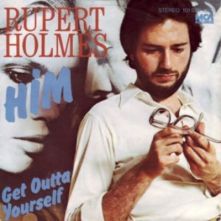 Rupert Holmes continues to surprise me. I had originally written off “Escape (The Pina Colada Song) ” as a sappy nothing until I actually listened to it. Now, here I am with “Him” (#6), and the treacly lounge violins belie a surprisingly thoughtful telling of a man who knows his girlfriend is cheating, and is reaching the breaking-point. She’s getting careless, you see, leaving the other guy’s cigarettes around the house. It’s possible that it’s this carelessness is what is setting Rupert over the edge; the first few lyrics are so careworn and resigned that I get the sense that he could handle the cheating if Rupert weren’t always being reminded of it. If there’s one thing I’ve learned from relationships (and advice columnists) the member of a relationship who delivers an ultimatum like Rupert does in this song is going to be the one who loses — either she’s going to leave or she’ll pretend to be faithful while going back to the affair on the sly. But Rupert sounds like he’s ready to lose, and who can blame him? He’s a victim in a really unpleasant situation; I’d want it to end, too.
Rupert Holmes continues to surprise me. I had originally written off “Escape (The Pina Colada Song) ” as a sappy nothing until I actually listened to it. Now, here I am with “Him” (#6), and the treacly lounge violins belie a surprisingly thoughtful telling of a man who knows his girlfriend is cheating, and is reaching the breaking-point. She’s getting careless, you see, leaving the other guy’s cigarettes around the house. It’s possible that it’s this carelessness is what is setting Rupert over the edge; the first few lyrics are so careworn and resigned that I get the sense that he could handle the cheating if Rupert weren’t always being reminded of it. If there’s one thing I’ve learned from relationships (and advice columnists) the member of a relationship who delivers an ultimatum like Rupert does in this song is going to be the one who loses — either she’s going to leave or she’ll pretend to be faithful while going back to the affair on the sly. But Rupert sounds like he’s ready to lose, and who can blame him? He’s a victim in a really unpleasant situation; I’d want it to end, too.
I used to love to make you cry
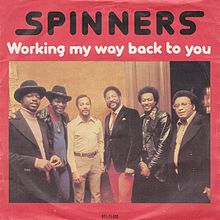 It is, alas, established in the entertainment business that if you put something out there that has name recognition, people will naturally gravitate toward it. This is why Hollywood keeps creating mediocre remakes of good movies (Sabrina, The Day the Earth Stood Still) instead of making stories that are more relevant to the zeitgeist of the time. So, then The Spinners come along and give us a straight-up remake of not just “Working My Way Back to You” by The Four Seasons throwing in a bit of something called “Forgive Me, Girl” which I’m not able to track down in the limited amount of time I’m willing to work on it. The result, “Working My Way Back to You/Forgive Me, Girl” is bland and overproduced. But it worked– it went to #2. Give the people what they want, or even more importantly, what they don’t realize they want, and you’ll never want for money.
It is, alas, established in the entertainment business that if you put something out there that has name recognition, people will naturally gravitate toward it. This is why Hollywood keeps creating mediocre remakes of good movies (Sabrina, The Day the Earth Stood Still) instead of making stories that are more relevant to the zeitgeist of the time. So, then The Spinners come along and give us a straight-up remake of not just “Working My Way Back to You” by The Four Seasons throwing in a bit of something called “Forgive Me, Girl” which I’m not able to track down in the limited amount of time I’m willing to work on it. The result, “Working My Way Back to You/Forgive Me, Girl” is bland and overproduced. But it worked– it went to #2. Give the people what they want, or even more importantly, what they don’t realize they want, and you’ll never want for money.



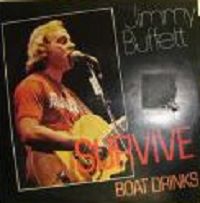 I’m getting a very strong Randy Newman vibe off of “
I’m getting a very strong Randy Newman vibe off of “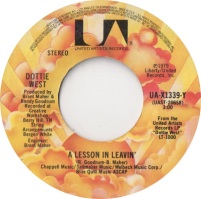 Has any hip-hop artist sampled the backbeat from “
Has any hip-hop artist sampled the backbeat from “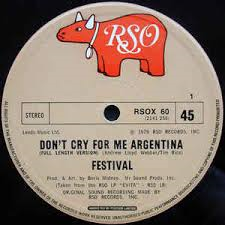 As you can probably imagine, “
As you can probably imagine, “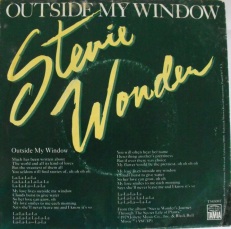 I’m going to sing the praises of Stevie Wonder again, not because I think “
I’m going to sing the praises of Stevie Wonder again, not because I think “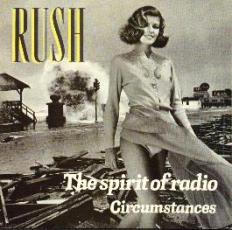 I have never been much of a fan of Rush, but I respect what they do with music, because, like Stevie Wonder, they try and succeed in doing interesting things with music that few people were trying to do on the top 40 charts. “
I have never been much of a fan of Rush, but I respect what they do with music, because, like Stevie Wonder, they try and succeed in doing interesting things with music that few people were trying to do on the top 40 charts. “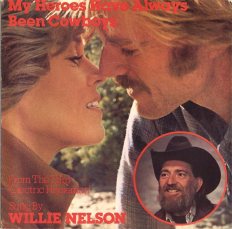 “
“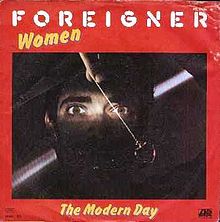 The don’t make casual misogyny like “
The don’t make casual misogyny like “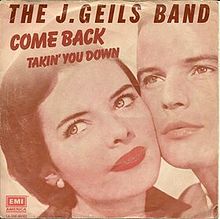 “
“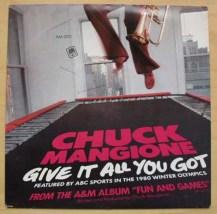 My father loved Chuck Mangione. I never regarded him as anything more than harmless. Given all the other things we might have been listening to on the way to school, I far preferred Chuck Mangione over some of the other available options. I don’t explicitly remember “
My father loved Chuck Mangione. I never regarded him as anything more than harmless. Given all the other things we might have been listening to on the way to school, I far preferred Chuck Mangione over some of the other available options. I don’t explicitly remember “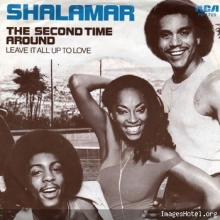 Shalamar, at least in “
Shalamar, at least in “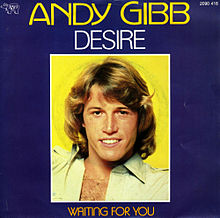 “
“ On 15 March 1980, “
On 15 March 1980, “ Thankfully “
Thankfully “ I’m having trouble getting excited about “
I’m having trouble getting excited about “ “
“ The purpose behind the movie The Rose was to help us all imagine what life was like with Janis Joplin, even if the movie wasn’t technically about Janis Joplin. Bette Midler’s cover of “
The purpose behind the movie The Rose was to help us all imagine what life was like with Janis Joplin, even if the movie wasn’t technically about Janis Joplin. Bette Midler’s cover of “ Weird as it may be, I think “
Weird as it may be, I think “ “
“ I would never have known this if I’d not gone to the song’s Wikipedia page, but it turns out that “
I would never have known this if I’d not gone to the song’s Wikipedia page, but it turns out that “ John Cougar Melloncamp’s made a career out of angsty earnestness, and “
John Cougar Melloncamp’s made a career out of angsty earnestness, and “ You would think if you wanted to foist a jingoistic single on the world, you would try to time it to your country’s independence day. Independence Day in the USA is July Fourth; Jim Kirk’s grating bombastic bit of national chauvinism — “
You would think if you wanted to foist a jingoistic single on the world, you would try to time it to your country’s independence day. Independence Day in the USA is July Fourth; Jim Kirk’s grating bombastic bit of national chauvinism — “ In slot #47, there’s Tavares, who in 1976 were worried that
In slot #47, there’s Tavares, who in 1976 were worried that  Bonnie Pointer of the Pointer Sisters had something of a solo career, of which “
Bonnie Pointer of the Pointer Sisters had something of a solo career, of which “ Leave it to Led Zeppelin to construct something that grabs a listener’s attention with something that just sounds different. In this case it’s “
Leave it to Led Zeppelin to construct something that grabs a listener’s attention with something that just sounds different. In this case it’s “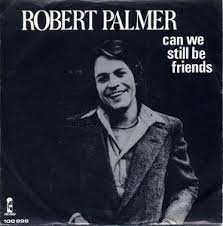
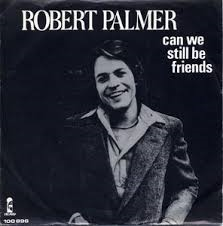 On 2 February, 1980, “
On 2 February, 1980, “
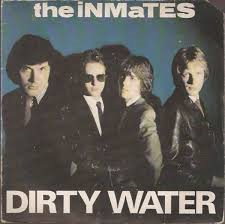 On 26 January, 1980, “
On 26 January, 1980, “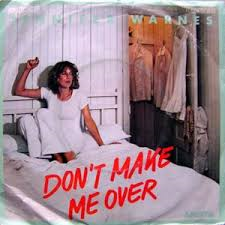
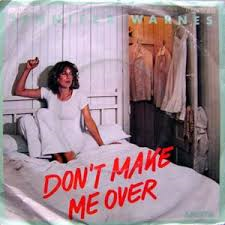 On 26 January, 1980, “
On 26 January, 1980, “
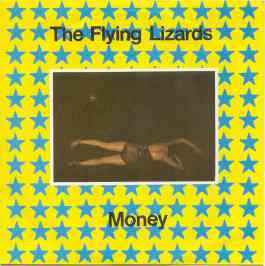 On 19 January, 1980, “
On 19 January, 1980, “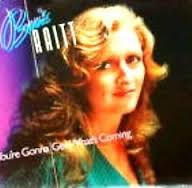
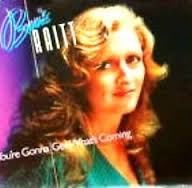 On 12 January 1980, “
On 12 January 1980, “